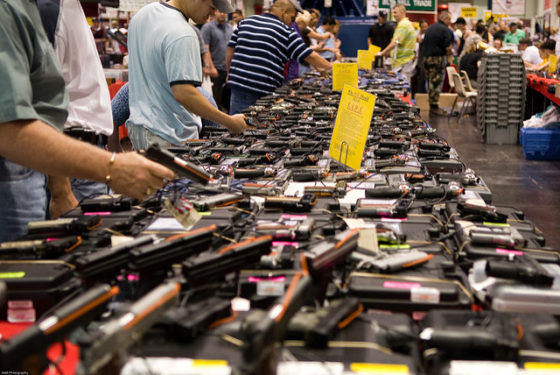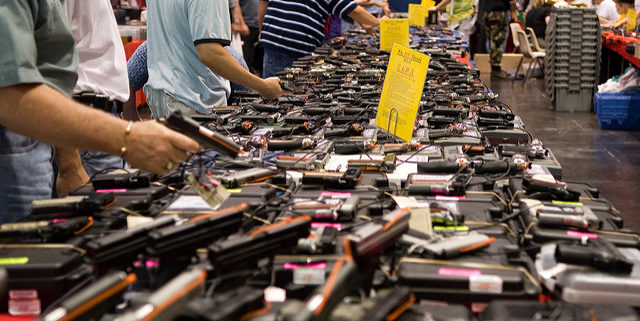California Gun Laws: What You Need To Know

If you own or are considering acquiring a gun in California, here’s what you need to know.
Gun Purchase And Ownership
California gun laws restrict who can buy a gun, and how. First, you must be at least 18 years old to purchase a rifle or a shotgun. For a handgun, you must be at least 21. In either case, you must have a Firearm Safety Certificate and complete a safety demonstration with your new gun. Cal. Pen. Code, § § 26800-26850. You’ll need to present valid ID – either a current California driver’s license or identification card issued by the DMV. If you’re not a citizen, you can bring documentation of your Alien Registration Number. In addition, there is a ten-day waiting period after your purchase during which the state will run a background check (note that this rule is currently being appealed in federal court). Finally, all guns must generally be purchased through a California licensed dealer using the Dealer’s Record of Sale (DROS) system, which records your ownership and identity.
New Residents
If you have purchased a gun in another state and are moving to California, you have 60 days to either:
- submit a New Resident Report Of Firearm Ownership and a $19 fee to the California DOJ Bureau of Firearms
- sell or transfer the gun to or through a licensed California firearms dealer
- sell or transfer the gun to your local California police department (you should contact them first for detailed instructions)
If you move to California and do not register or sell your firearm, you face at least a misdemeanor charge with fines and up to 1 year in county jail. If you have prior convictions or if you’re prohibited by California law from owning a firearm, you may face 2-4 years in jail. Cal. Pen. Code § 12072(g).
Under California gun laws, certain people are prohibited from ever owning a firearm. These include:
- Anyone whose probation terms prohibit ownership
- Any individual convicted of a violent crime or felony
- Anyone subject to a permanent or temporary restraining order
- Anyone who has been afflicted with mental illness who has been found by the court to be a danger to themselves or others
- Any individual convicted of misdemeanors outlined under Penal Code section 29805
- Anyone illegally residing in the U.S.
- Individuals addicted to using narcotics
- Any person who was taken into custody under sections of the Welfare and Institutions Code
- Anyone who has been dishonorably discharged by the military
- Anyone determined to be a sex offender with a mental disorder
In order to determine who is disqualified from being able to own a weapon, California uses the Armed Prohibited Persons System. Officers are allowed to confiscate weapons if the individual appears in the database to have purchased a weapon in the past.
Banned Firearms
There are certain types of guns and related equipment that cannot be bought or sold in California, regardless of whether you meet the general requirements. These include:
- Large capacity magazines (those that hold more than 10 rounds of ammunition)
- .50 Browning Machine Gun caliber rifles
- Assault weapons
- All automatic weapons
- Rifles with barrels of less than 16”
- Short-barreled shotguns
Transporting Or Carrying a Firearm
California gun laws are unusually strict as far as transporting and carrying firearms. In general, it is illegal to open carry a “handgun” in any public place and in any incorporated city or county, or in prohibited areas (like schools, airports, and government buildings). You can openly carry firearms in private parts of unincorporated areas. In this case, a “handgun” doesn’t just refer to pistols – it means any gun with a barrel shorter than 16″ or that could be concealed somewhere on your person. Cal. Pen. Code § 26350. These rules apply even to unloaded weapons.
You are allowed to transport an unloaded firearm in a locked and secured container to or from your vehicle. You can also transport an unloaded firearm in your vehicle as long as it’s unloaded and in either a locked and secured container or in your trunk. Cal. Pen. Code § 25610. Remember that a glove compartment does not qualify.
Long guns may not fall under this restriction, but certain counties and cities may have separate sets of restrictions on the open carrying of long guns so you’ll need to check with local law enforcement to learn the laws in your area.
Loaded Vs. Unloaded Guns And Other Factors
Carrying an unloaded gun and carrying a loaded gun in public are separate offenses under California gun laws. In general, both crimes are misdemeanors unless there are aggravating factors, such as:
- the person carrying the gun is prohibited from having a firearm under California gun laws
- the gun was stolen
- the gun is unregistered
- the person carrying the gun is a member of an active street gang
If there are aggravating factors, possession of a gun (either loaded or unloaded) in public may be a felony offense involving jail time.
California Concealed Carry Laws
In California, concealing a gun on your person or in a vehicle that’s under your control or direction is illegal. It’s also illegal to cause another person to conceal a gun in a vehicle that you’re riding in. Carrying a concealed weapon may be charged as a misdemeanor with fines and up to a year of jail time, but it may also be charged as a felony if there are any of the aggravating factors listed above. Cal. Pen. Code § 25400.
Under certain circumstances, you may be able to obtain a Concealed Carry Weapon (CCW) license. You’ll need to apply with your local sheriff’s or police department. In order to get the license, you’ll need to prove that:
- you’re “of good moral character”
- you have good cause for wanting a CCW license
- you’re a resident or work in that city or county and have done so for a substantial amount of time
- you’ve completed a state-approved training course on firearm safety and firearm laws.
Cal. Pen Code § 26150(a).
The most difficult part of that process is generally proving that you have good cause for wanting a CCW license; fearing for your personal safety generally does not qualify.
Exceptions
Note that the California gun laws provide for exceptions for certain individuals and uses, including on- and off-duty law enforcement and military personnel. These exceptions may apply to the types of firearms you can purchase or possess as well as where and how you can carry them.
Facing Charges Under California Gun Laws
California takes gun crime seriously and you may end up facing jail time, or at least fines, for even relatively minor infractions. There are some defenses, but you’ll need to work with an experienced local attorney to make sure that your rights were respected through the search and arrest process and that you use all available defense to avoid conviction. Remember that you always have the right to an attorney and you cannot be forced to incriminate yourself to the police.
If you’re facing charges under California gun laws, we can help you find an attorney to protect your rights.
Image Credit and License
Are you in search for a certified attorney to represent you?
Let us help you find one today!



Do you have to inform if you are carrying an unloaded firearm locked in a hard case in your vehicle?
Hi, Chris.
Some counties have local ordinances requiring you to inform law enforcement at the first available opportunity so it depends on your location. Please give us a call for more 818-340-4529.